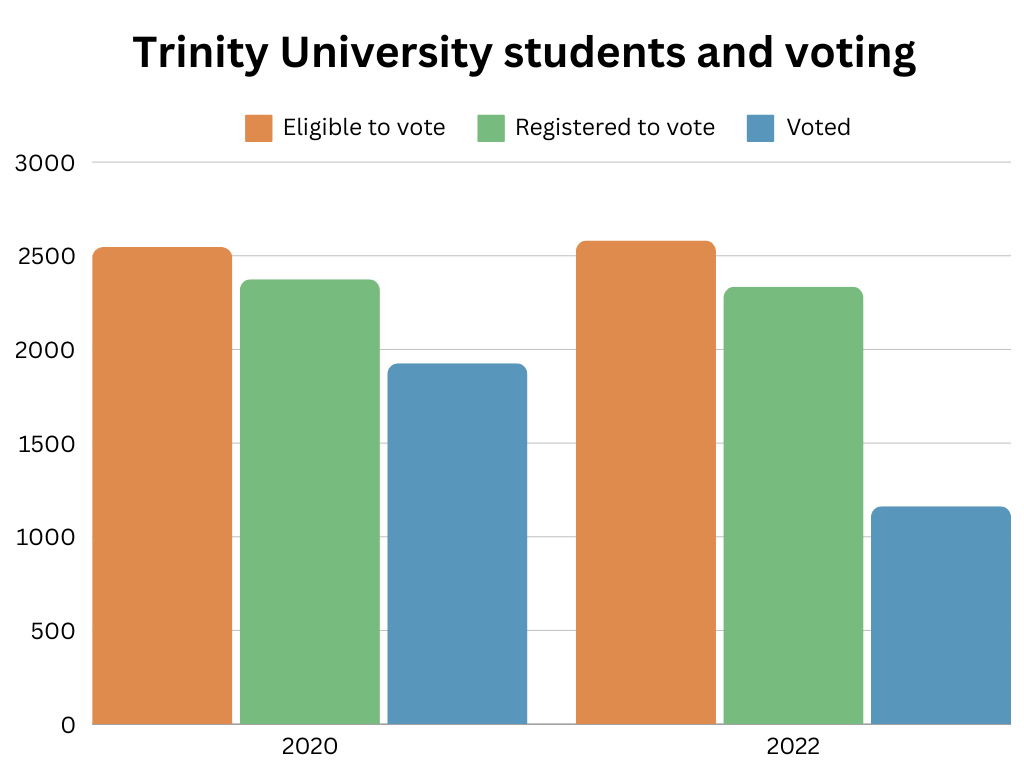This Tuesday, Tigers for Liberty (TFL) set up a display in Coates about the horrors of Mao ZeDong’s leadership in China. The table featured “Commie Cookies,” fortune cookies stuffed with slips of foreboding predictions made true during Mao’s rule. These included “You will kill 60 million people,” or “You will make innocent families starve.” The poster advertising the table was a hand drawn portrait of an eyes-closed, smiling Mao ZeDong with Chinatown font lettering. While the information provided was not an outright lie about Mao’s legacy, the display’s racist caricature of Chinese culture and people should overshadow any kernels of truth they managed to sneak in. As Trinity students, dialogues about political systems of government and economics should be grounded in informed ideological differences rather than insidious generalizations or fear-mongering.
There are just too many meaningful distinctions between Marxist, Leninist, Maoist and capitalist thought for the simplistic view offered by “commie cookies” and Red Scare propaganda to be satisfying for Trinity students. There are just too many meaningful distinctions within and between Marxist, Leninist, Maoist and Capitalist thought to be interrogated for Trinity students be satisfied with a “Commie Cookie” for your daily dose of Red Scare propaganda. Before TFL sets up more of these booths, it may be useful to frankly ask what the purpose is. Who on campus is advocating Maoism? Has the secret Tiger Communist Party returned? Is there a resurgent global Maoist Movement that we have all been missing this whole time? By TFL’s own admission, China has completely moved away from Maoist thought since his death. It seems more likely that TFL is simply caught up in buttressing a racist “Yellow Peril” narrative about an imaginary, long-dead enemy in hopes to shut down rather than facilitate informed discussion.
Our intention here is to incite a better version of this dialogue. The approach taken by TFL is not to disprove the substance of communism, but to bluntly repeat sweeping statistics about its failure and tie them directly to suspect claims about Mao’s own “insane psychopathy.” But if we are being honest and scholarly about this matter, we ought to ask: is the failure of communism in China a product of a couple of “insane psychopaths,” or was it failed economics mixed with nationalism? This difference is completely elided by the dog-whistle racist, “crazy Chinese” narrative evoked by TFL.
Treating the “horrors of communism” as a homogenous block arising only out of one man’s alleged insanity is simply a-historical. Much of the backlash in China to the imperial reach of Western Capitalism is understandable. China was subject to market domination, colonial control and outright invasion by Capitalist economic powers for hundreds of years leading up to the establishment of the People’s Republic of China in 1949. Thus, the rise of Mao ZeDong through narratives which stressed anti-imperialism, communitarian economics and rural agrarian empowerment are worth treating as credible. The ways that Mao acted on these ideals through economic and foreign policy is a product of complex social and cultural forces dating as far back as the Warring States period (475–221 BCE) in China. The differences between classical Marxism, Leninism and Maoism are subject to intense theoretical debates within academia.
The understanding of Chinese policy as “crazy” and “irrational” is an acute failure of TFL’s display, but they are certainly not the first to deploy this rhetoric. As mentioned in reference to the “Yellow Peril” narrative, understanding Chinese actions as nothing but the closed-mindedness of a psychopath are pervasive in Western discourse on China throughout the 19th and 20th Centuries. This narrative is obviously false, as demonstrated by the substance of U.S.-China policy, which expected and predicted a rational response from Mao. For instance, U.S. policymakers established a clear containment policy for decades under the assumption that Mao would correctly read our signals of force and defer to diplomacy over military conflict. What room does this paradigm leave for meaningful engagement with Chinese policy or culture if it assumes China will always act irrationally? This rhetorical strategy is rhetorically and theoretically incoherent.
We welcome debate on these issues and recognize the array of theoretical stances which inform the discussion of Mao’s legacy. We hope that the members of TFL who ran the booth will elect to drop the fortune cookie act and participate in that discussion.






